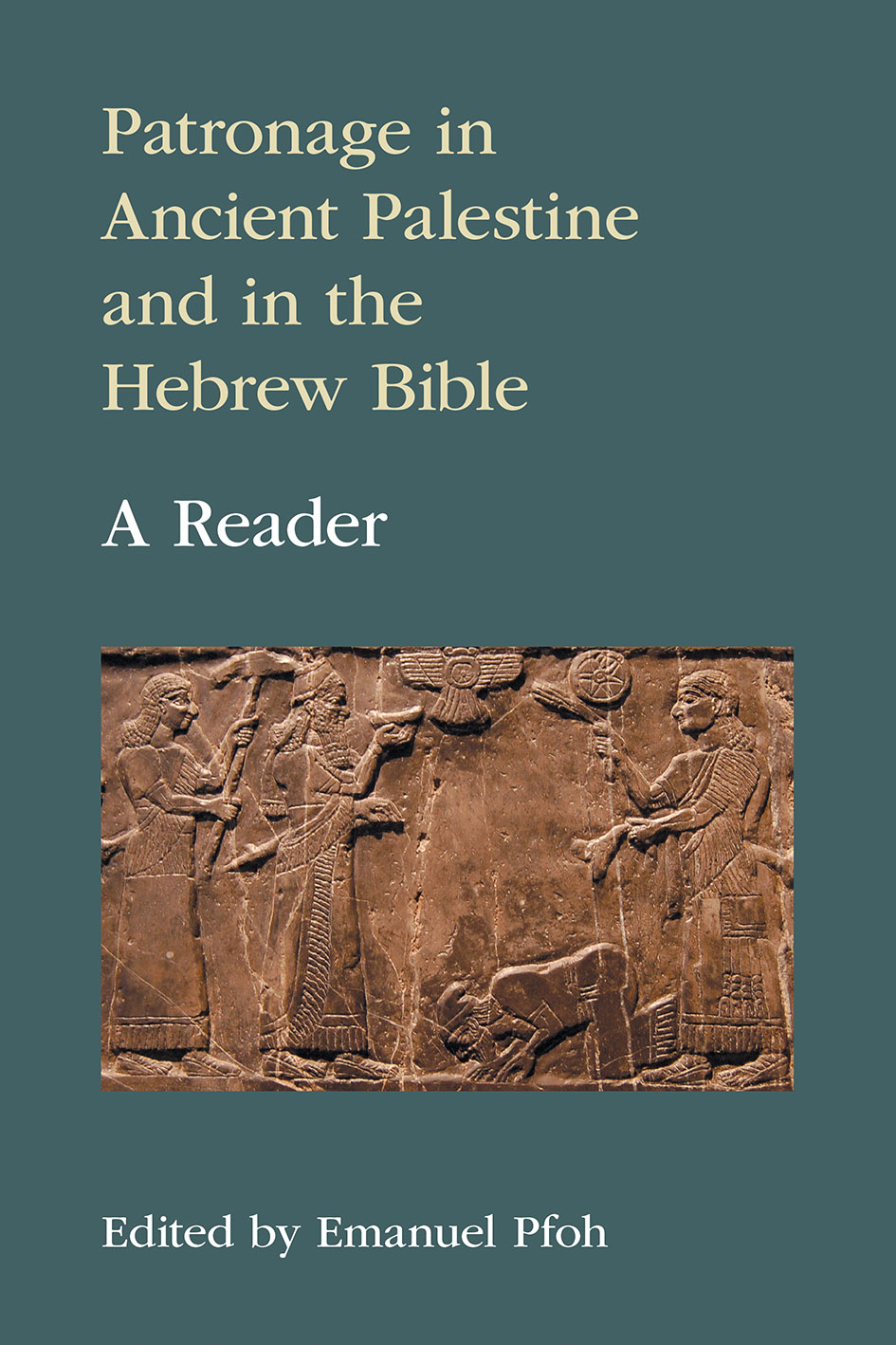Patronage in Ancient Palestine and in the Hebrew Bible: A Reader
By Emanuel Pfoh
Published: May 2022
£80.00
Patron—client relationships have been documented and studied by anthropologists and sociologists since the 1950s. They are known in rural settings and urban locations alike, and virtually in every region of the world. But it was only in the last decades of the twentieth century that this analytical model was slowly incorporated into the socio-political interpretation of biblical texts and other ancient Near Eastern sources. The patronage model proves to be a useful interpretative tool, casting new light on many aspects of the history of Israel and of other socio-political communities in the southern Levant. Moreover, the concept of patron—client relationships clarifies many of the implicit socio-politics found in the narratives and motifs of several biblical books.
This remarkable and comprehensive new reader collects over 20 studies by renowned scholars dealing with different aspects and situations of patronage: in the context of Southwest Asia (the 'Middle East') during the second millennium bce, in relation to the history of ancient Palestine during the first millennium bce, and as well with references to patron—client ties in texts of the Hebrew Bible. While these selected papers do not presume to offer an exhaustive treatment of periods, historical cases and themes in ancient Palestine and in Hebrew Bible literature, they variously illustrate the many possibilities of the concept of patronage to elucidate them.
Patronage in Ancient Palestine and in the Hebrew Bible: A Reader
By Emanuel Pfoh
£80.00
Patron—client relationships have been documented and studied by anthropologists and sociologists since the 1950s. They are known in rural settings and urban locations alike, and virtually in every region of the world. But it was only in the last decades of the twentieth century that this analytical model was slowly incorporated into the socio-political interpretation of biblical texts and other ancient Near Eastern sources. The patronage model proves to be a useful interpretative tool, casting new light on many aspects of the history of Israel and of other socio-political communities in the southern Levant. Moreover, the concept of patron—client relationships clarifies many of the implicit socio-politics found in the narratives and motifs of several biblical books.
This remarkable and comprehensive new reader collects over 20 studies by renowned scholars dealing with different aspects and situations of patronage: in the context of Southwest Asia (the 'Middle East') during the second millennium bce, in relation to the history of ancient Palestine during the first millennium bce, and as well with references to patron—client ties in texts of the Hebrew Bible. While these selected papers do not presume to offer an exhaustive treatment of periods, historical cases and themes in ancient Palestine and in Hebrew Bible literature, they variously illustrate the many possibilities of the concept of patronage to elucidate them.

